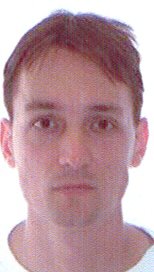Levente Seláf, born in Szeged, Hungary, in 1974. Ph.D. from Eötvös Loránd University, Budapest. Lecturer in Hungarian Literature at the Eötvös Loránd University, Budapest.
Visiting Grant Scholar (1 September 2003 – 30 November 2003)
LYRICAL MODELS IN MEDIAEVAL POETRY
During the three months I stayed in Wassenaar I made significant progress in my research. I prepared two publications. The first is a long book review (Michel Zink: Poésie et conversion au Moyen Age, Paris, PUF, 2003) to be published this winter in the Revue des Langues Romanes, one of the most prestigious reviews of romance philology. The second publication is an article, entitled “Gender and Violence in the Early Pastourelles”, which is the definitive version of a lecture given this October at the conference Gender and Violence, held at the University of Economic Studies, BKÁE, Budapest. As to my original research plan, the progress I made can be measured in three different areas. First, the comparative work I did on the study of Middle Dutch Poetry and Versificationled to the outline of an article, with the working title ‘Dutch and French lyrical poetry in the Middle Ages: the missing link.’ I hope to finish this article during the winter of 2003. Secondly I benefited from a real initiation into Middle Dutch Philology, and I learned a lot on the medieval relations between French and Dutch literature. The third important area of progress was the contacts I established with several specialists of that field; Frits van Oostrom, Frank Willaert and W.P. Gerritsen helped me with their guidance and suggestions, I will try to organize a colloquium in comparative poetics and metrics with their participation, on the history of the metrical module aab, so important in almost every European literary tradition. I also had the opportunity to meet another important colleague working on projects comparable to mine; René Stuip, who prepared a ‘provisional’ edition of the fifteenth-century French novel Baudouin de Gavre, helped me with interesting suggestions and offered his transcription of the edition.
